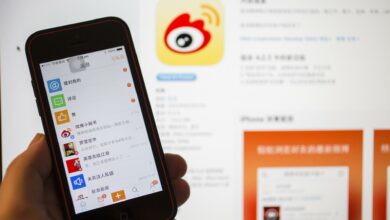Catholic Church against Marcos in the Philippines’ presidential elections

By Federico Segarra
Manila, Apr 26 (EFE). – Officially the Catholic Church in the Philippines has maintained its traditional neutrality ahead of the presidential elections of May 9, but important figures from the clergy have publicly supported the candidacy of Leni Robredo to avoid the return to power of the Marcos family.
With less than two weeks before the elections, Bongbong Marcos – son of the late dictator Ferdinand Marcos – heads all surveys as he squares off against the country’s vice president, Leni Robredo.
More than 1,000 priests from different dioceses of the country issued a joint statement Friday expressing support for Robredo.
The impact of this support is difficult to assess. Despite the Church’s enormous social influence among its adherents – 85 percent of the population -, similar calls from important Church figures have not appeared to bear fruit in previous elections.
Political scientist Maria Ela Atienza of the University of the Philippines (UP) explained to EFE that “there has never been a Catholic vote in the country, but the Church led the opposition to the dictatorship of Marcos in the late 1970s, and was cruicial in overthrowing the regime in 1986,” referring to the peaceful revolution that forced the Marcos family into exile to the United States.
The priests who signed the manifesto, however, could fall into certain moral conflict by supporting Robredo, who has been in favor of studying the decriminalization of abortion or the protection of the LGTBI rights, issues that the Church has traditionally opposed.
“There is a realization that this struggle goes beyond moral issues such as reproductive health or divorce. The priests are a part of a broader coalition, which includes progressive and leftist groups, feminists, the LGTBI movement, or simply businessmen and politicians who oppose the return of the Marcos,” Atienza said.
Bongong Marcos currently enjoys more than 50 percent of the support of the people, according to the latest survey released in April by Pulse Asia.
His candidacy has been underpinned by a powerful and incisive campaign of disinformation on social media, where a favorable image has been projected about the time of the dictatorship of his father (1965-1986) through fake news and omission of proven facts.
In February, the Catholic Bishops’ Conference, in a statement, expressed its rejection of “radical distortions” in the history of the Martial Law under Marcos and denounced the disinformation campaigns on social networks.
The conference then avoided directly mentioning Marcos, but expressed concern about a historical revisionism the country would faces if Marcos Jr. becomes president.
Moreover, the Church has unanimously opposed President Duterte’s bloody war on drugs, where according to human rights groups, at least 27,000 people were killed by the police, which led the International Criminal Court to start an investigation of possible crimes against humanity.
A professed-admirer of Ferdinand Marcos, Duterte has defended his political legacy, and his daughter Sara Duterte aspires to the vice presidency under the dictator’s son, Bongbong Marcos.
Nevertheless, Duterte has not supported Marcos Jr. publicly and has denigrated him in public, accusing him of being a weak leader and insinuating that he is addicted to cocaine. EFE
fsg/sc





